
the Little Easy
I moved into this home in July 2023, fresh out of New Orleans, and searching for a creative haven of my own here in Denver. When I found this house it had been neglected for some time, but its solid bones, great views, spectacular location, and wildflower-filled yard gave me a glimpse of what it and the local community could become. With that, I made my first house purchase ever!
The cottage, built in 1929, is modest but full of character. It’s a place that (I hope) transports you to a world away from the hustle-and-bustle, whether you’re baking in the vintage stove, streaming movies on the vintage projector, or using it as a walkable HQ for a Broncos or Rockies game. Though I now live with my fiance, I love sharing the ‘The Little Easy’ with others who are looking for a bit of creativity, ‘slow-living’, and a reset.
I hope during your stay you find time to get inspired by the space just as I have. Thank you for embracing the vision of The Little Easy and becoming part of its story.
before & afters:
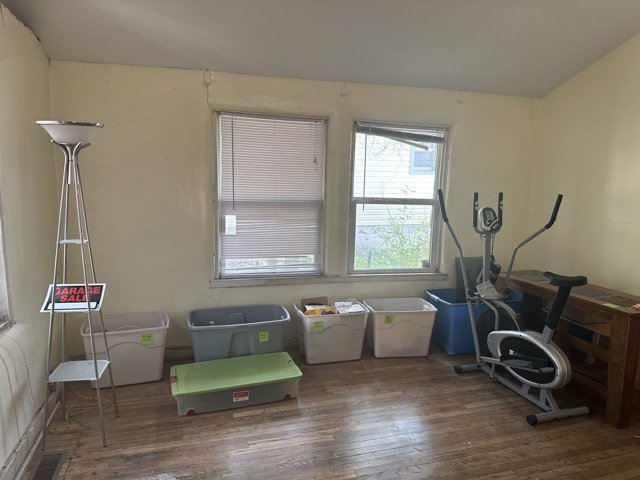
Dining (before)
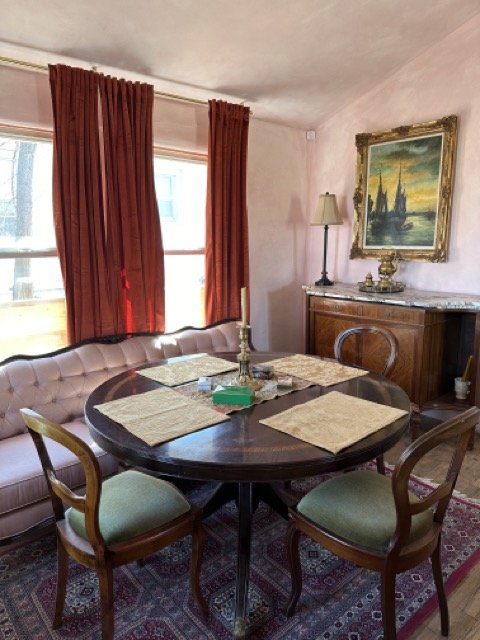
Dining (after)
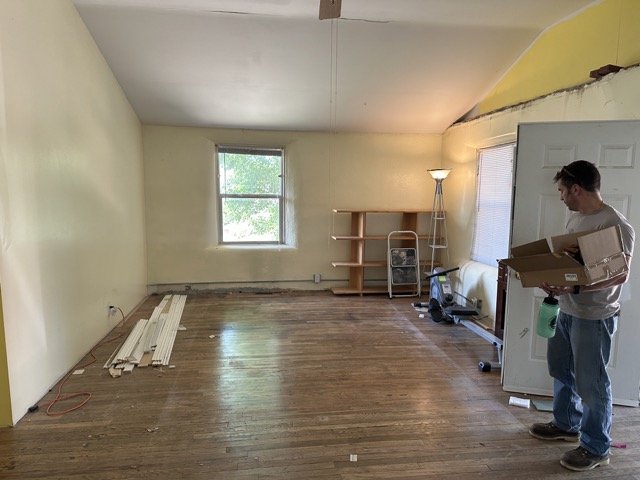
Living Room (before)

Living Room (after)
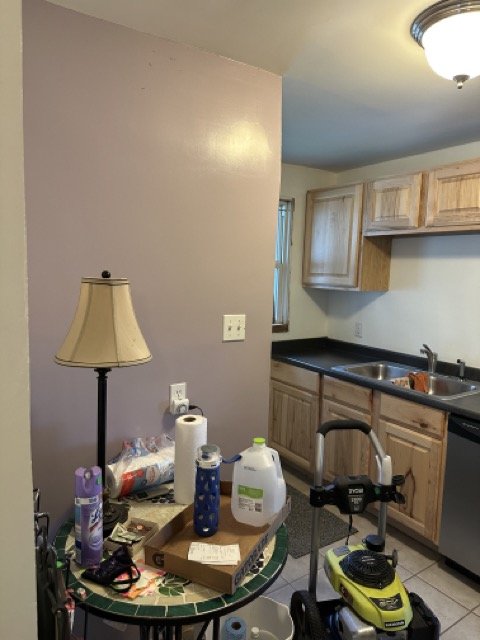
Kitchen (before)
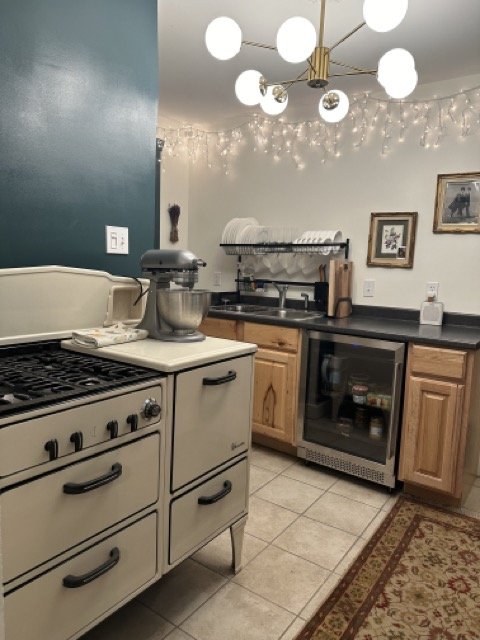
Kitchen (after)
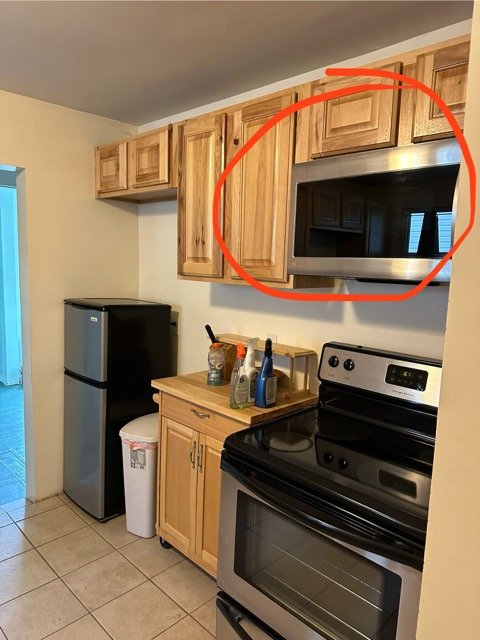
Kitchen (before)
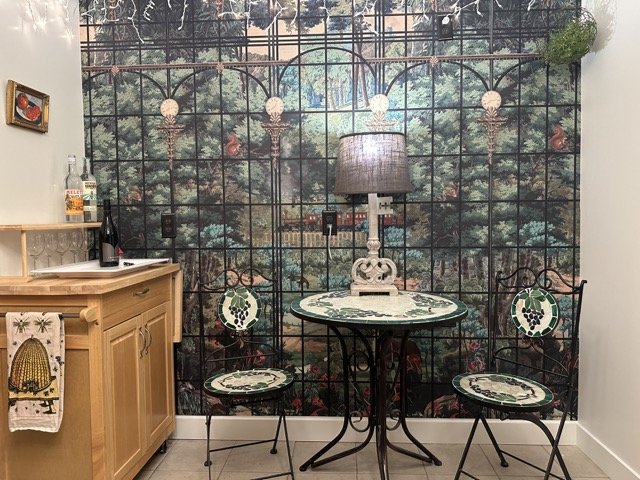
Kitchen (after)
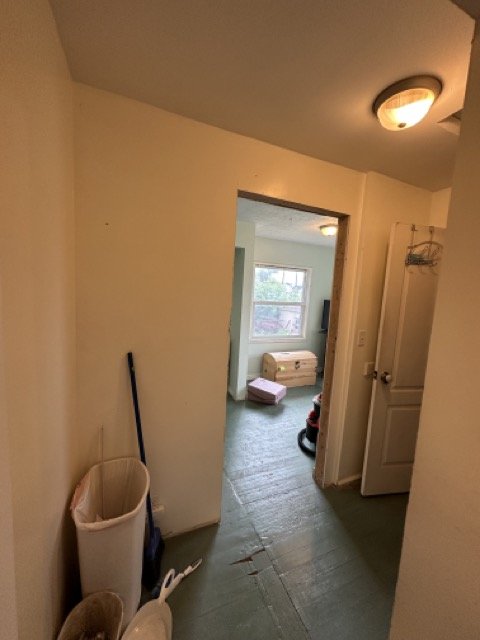
Hall (before)

Hall (after)
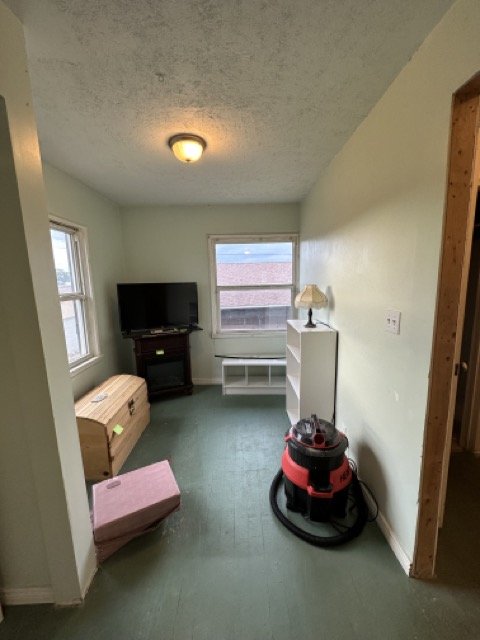
Office (before)
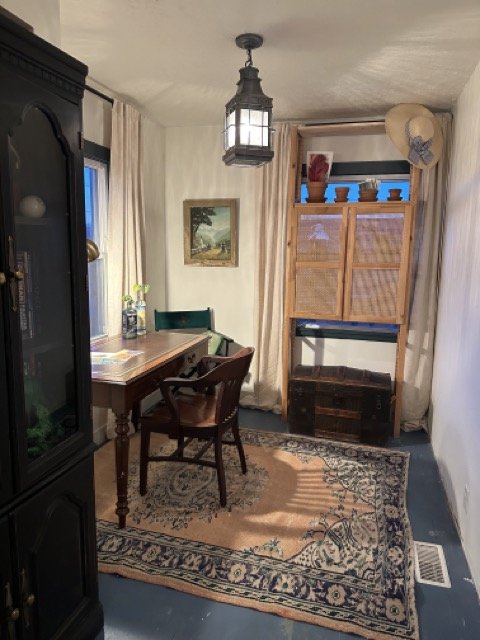
Office (after)
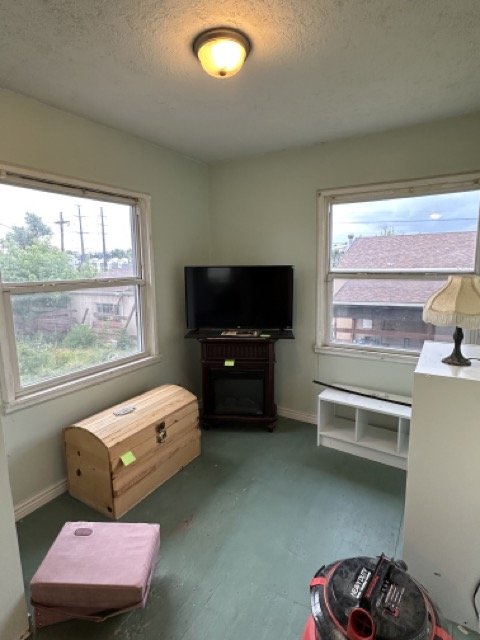
Office (before)
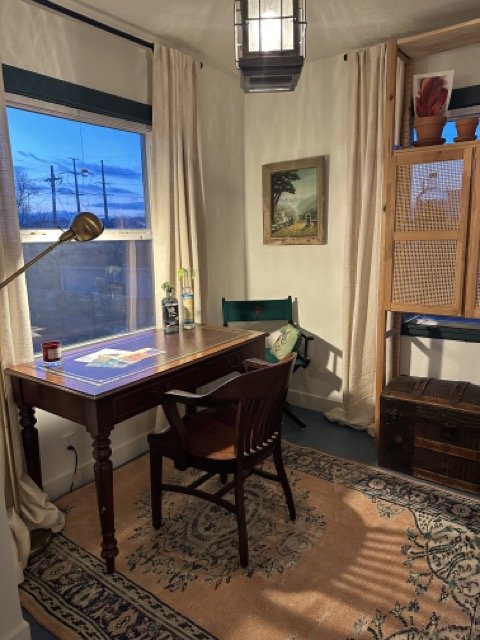
Office (after)

Guest Room (before)

Guest Room (after)
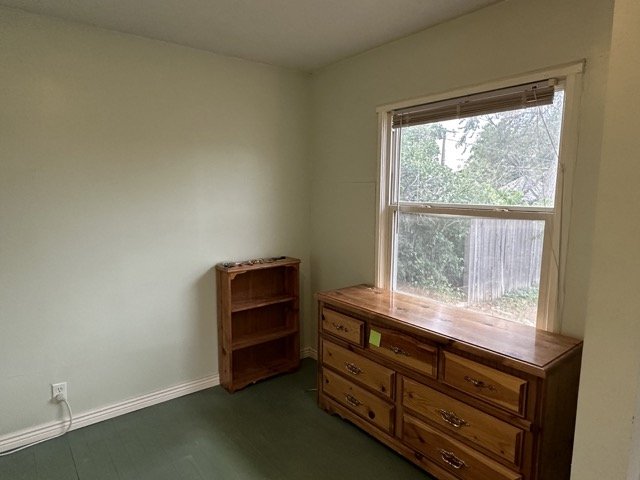
Guest Room (before)
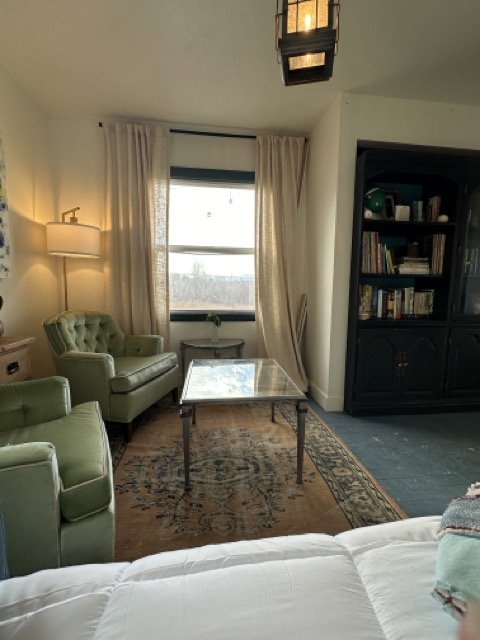
Guest Room (after)

Bathroom (before)
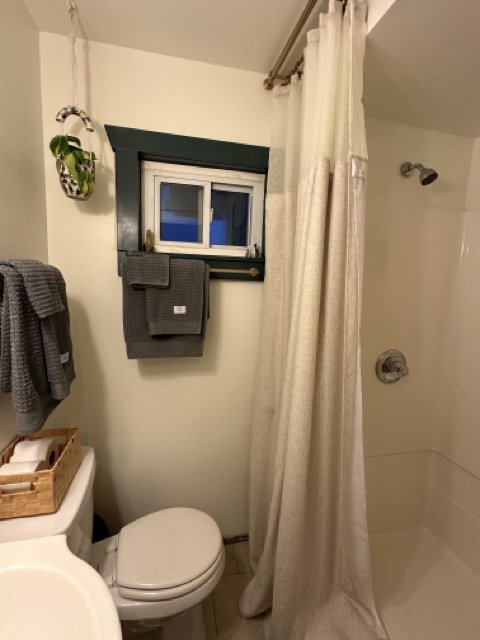
Bathroom (after)

Master Bedroom (before)
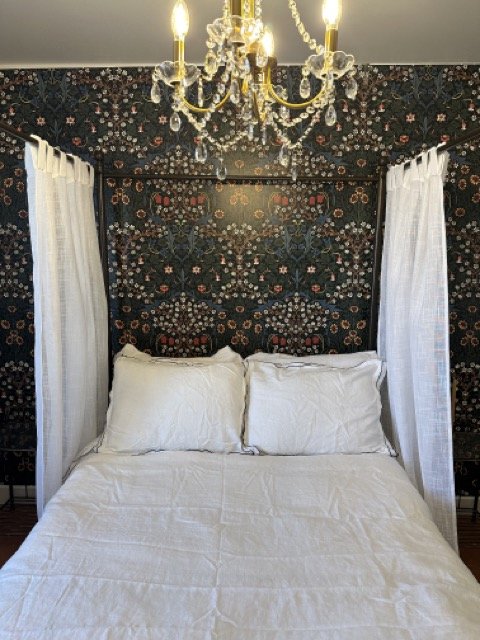
Master Bedroom (after)
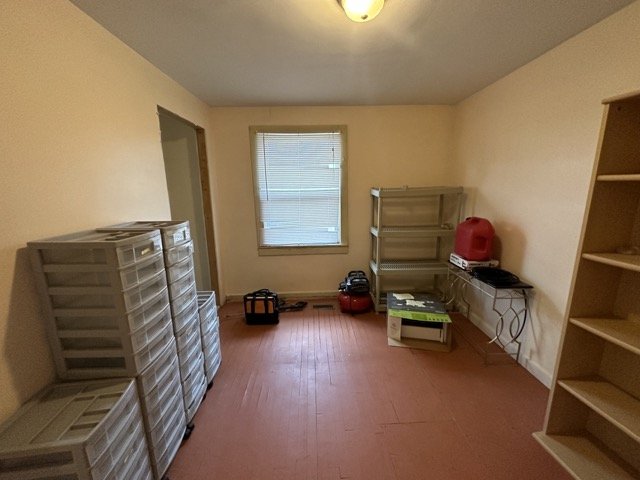
Master Bedroom (before)
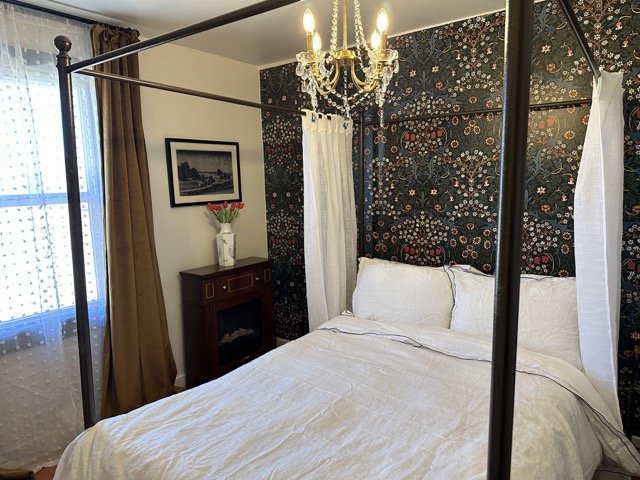
Master Bedroom (after)
Get to know the
native pollinator garden
Local greenthumbs will tell you there are 3 stages to starting a garden full of native plants:
Sleep, Creep, and Leap. Native, water-wise plants spend their first year ‘sleeping’ - putting their energy into building strong root systems. In Year 2 they start creeping - putting energy into building their first strong stems. Finally, in Year 3, they’re leaping - flowering, producing berries, humming with butterflies, and all the things one dreams of in a cottage garden!
It’s Year 1.5 for this garden, and the natives are in their Sleep and Creep phases. We’ve started 4 native trees (a crabapple, a bald cypress, a flowering serviceberry, and a fragrant catalpa) to eventually provide shade and dimension to the garden. And, we’ve planted over 40 varieties of native wildflower and clover to replenish the soil and feed local pollinators. So far, the seasons can be described as follows:
Winter: Everything is dormant, dry, and underwhelming. However, it’s gorgeous when it snows! Hawks are out every day, and rabbit tracks are easy to spot on fresh snow.
Spring: Everything goes green! Irises and tulip bulbs are particularly vibrant throughout the neighborhood, and in late spring, the city magically fills with the blossoms of lilac and fruit trees. Our 100-year old apricot tree explodes with white flowers!
Summer: Heat-loving wildflowers, roses, peonies, and poppies steal the show. The backyard gets tangly and vibrant, and birds, bees, and bunnies are daily visitors.
Fall: Golden-brown colors of the native plants take over as the flowers fade and birds harvest their seeds. Families of foxes and skunks sneak into the backyard to snack, and even play hide and seek among the brush!
Below are just a few of the native wildflowers we’ve introduced to the garden:
Carex Glauca (“Blue Zinger”) grass
Pink Pampas Grass
Mini Clover
Goldmoss Sedum
Showy Goldenrod
Native Poppies (“California Red”, “Mixed Shirley”)
Creeping Thyme
Flax (blue and scarlet)
Lavender
Black Velvet Nasturtium
Sweet Pea
Bugbane / Fairy Candle
California Giant Zinnia (hoping for a whole garden of these!)
Furman's Red Sage Salvia
Electric Blue Penstemon (“Electric Blue”, “Rocky Mountain One-Sided”, & “Harlequin”)
Red Hot Poker
Yarrow (golden, white, and pink)
Butterfly Milkweed
Siberian Wallflower
Veronica Spicata
Purple Sage
Non-native poppies (“Princess Louise Oriental”& “Himalayan” - I couldn’t resist!)
California Red Poppy
Bachelor Button
Daisies (white, Shasta, and African)
Sweet Alyssum
Perennial Lupine
Sumac
Coreopsis (Plains and Lance-leaved)
Cosmos
Gaillardia (Firewheel and Indian Blanket)
Larkspur
Baby Blue Eyes
Baby's Breath
Coneflower (purple, pink, “Yellow Prairie”, & “Mexican Hat”)
Mountain Garland
Catchfly
Candytuft
Sweet William Pinks
Blue Columbine
Sunflower
Black-eyed Susan
Wild Rocky Mountain Iris

